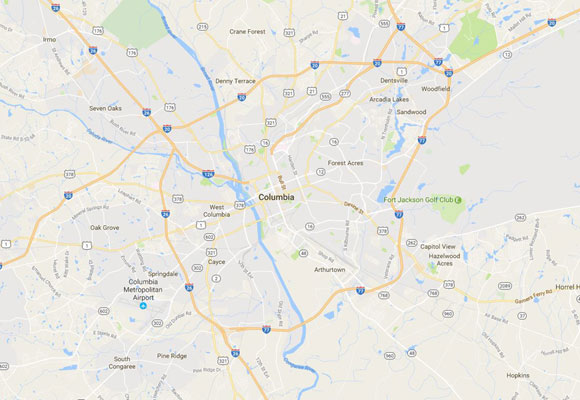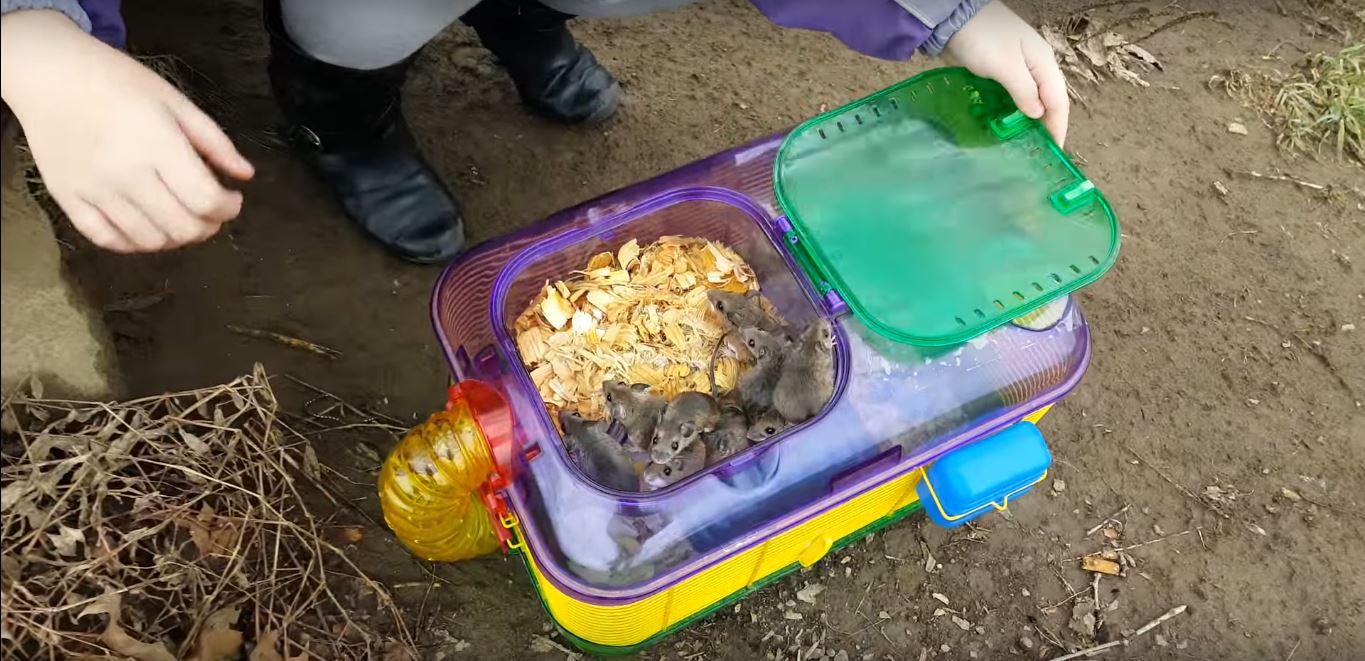
Animal Removal Columbia - Pest Wildlife
Welcome to Pest Animal Columbia! We are a wildlife removal company servicing Columbia, SC. When we come to your home to help you with your wild animal or pest removal, we will do a number of things to ensure that not only is your problem resolved, it won't come back. A 32-point home inspection means that a number of pests can be caught, trapped humanely, and then removed in the safest and most humane way possible. We are not exterminators, we do not use poison or fumigants, and we don't deal with insects. We are the number one pest control removal in your area for the third year in a row, and there's a jolly good reason for that. Our up to date training and state of the art technologies ensure that we do the job fast and efficiently. Snakes, skunks, bats, groundhogs, pigeons, rats, it doesn't matter. We are completely trained, and more than that, we have ten years of experience to back us. All from a family run business who are super friendly and give great advice. If you have a pest that needs to removed, get in touch for a quote today. We have technicians working locally and can usually give you a same-day appointment. Call us now at 803-250-3845 for your Columbia wildlife control needs.
About Pest Animal Columbia and Our Services:
Same-day or next-day appointments.
Thorough inspection of your property and attic.
Humane wildlife trapping and exclusion.
We repair wildlife damage and prevent re-entry.
We offer attic cleanup and sanitation services.
Fully South Carolina licensed and insured.
Poison-free Columbia rodent control - rats and mice.
Experts in South Carolina bat removal from buildings.
Columbia raccoon removal and skunk removal.
Dead animal removal, inside and outside.
Columbia snake removal and prevention.
Columbia bird control services.
Our Service Range

Our Service Range
We service Calhoun County, Fairfield County, Kershaw County, Lexington County, Richland County, and Saluda County. We service towns such as Columbia, Lexington, St. Andrews, Cayce, Dentsville, Forest Acres, Irmo, Seven Oaks, West Columbia, Batesburg-Leesville, Camden, Lake Murray of Richland, Lugoff, Oak Grove, Red Bank, Woodfield, Blythewood, Chapin, Elgin, Gaston, Pelion, Pine Ridge, Saluda, St. Matthews, South Congaree, Springdale, Winnsboro Mills, Winnsboro, Arcadia Lakes, Bethune, Cameron, Eastover, Gilbert, Ridge Spring, Ridgeway, Summit, and Swansea.Columbia Wildlife Removal Tip of the Month
The House Mouse
The mouse is one of the most commonly found rodents on earth. Because of their
high breeding rate and ability to adapt to virtually any environment, Columbia mice can
be found in most habitats on earth. They come in a variety of species, some
domesticated, and some used for scientific and research purposes, making them
one of the most widely known South Carolina animals on earth.

A South Carolina mouse (plural is mice) typically has a pointed snout and small ears that are rounded.
The most common form of mouse is the common house mouse, which is not only found in many
homes as a wild animal, but has also been domesticated and is a pet for many people.
Mice can be found in any place in your home where there is an access point of at least
one-quarter of an inch in diameter. They frequently reside in the walls, attics, and
storage areas of homes because they places offer them a warm place to live and shelter
from the elements. They are also often a secure place where they are free
from predators.
The birth process for a Columbia mouse can last as short as 25 days from conception up until about
40 days. Usually within two weeks after birth mice are able to survive on their own and will
usually begin to the join the group in the process of protection and food gathering.
Mice are different than many kinds of rodents, in that they prefer to live in a large
communities. This allows them a greater degree of protection and can also aid in their
ability to gather food for the community. During sleeping periods South Carolina mice will congregate in
large groups to share warmth and to protect them from the elements.
Mice will eat just about anything. Their large front teeth give them the ability to eat through
or bite at most things, including metals. Some South Carolina mice have been known to eat through metal plating
to get into areas of a home or business, or to gain access to food stuffs that are secured in metal
containers. The teeth are incredibly strong and are not only used for feeding and gnawing but also as
an aid in protection. The diet of most mice consists of food particles and garbage, bugs, insects and
plants. These creatures are true omnivores, in that there is very little that they will not eat. Survival
is their primary role, and so most things are seen as a viable food option. The Columbia mouse is a nocturnal animal,
meaning it prefers to hunt, gather and explore at night. This provides it a greater degree of protection from
predators, who are not able to locate the critters as well.
Performing these tasks at night is even greater benefit, considering that Columbia mice have very poor eye sight.
Much like the bat, the mouse relies mostly on its incredible sense of hearing to locate potential dangers,
and its sense of smell is quite exceptional as well. This helps the creature to find food from long distances
away, and also aids in defense, as it can smell predators usually long before the predator can locate them.
Many different animals are predators to the mouse. This includes such beasts as dogs, cats, birds, snakes,
foxes and arthropods. Because mice are able to adapt to such a wide variety of environments, they are a main
staple of food for so many predators. Most South Carolina mice prefer to burrow into places to make their homes. The common
field mouse will create nests in holes in the ground or in the areas under surface roots from trees. It is not
uncommon to find hundreds of mice congregated in one location if the space permits. It is rare to find a single
mouse living on his or her own, primarily because it is simply not safe for the beast to live on its own this way.
Too many predators would have easy access to the critter in this arrangement.
While many consider mice to be cure Columbia animals, they are the carriers of a large variety of illnesses. The diseases
and parasites are often found within their fecal matter, and can be harmful to adults just be breathing near where
the waste has been dropped. Hantavirus Pulmonary Syndrome is contracting by breathing in the hantavirus, which
becomes airborne after a mouse has dropped its waste. This is why cleanup must be done with extreme caution.
Mice are often used in experimentation because the brain chemistry of mice is quite similar to that of human
beings. It is quite common for South Carolina mice to be used in psychological kinds of testing for this reason. Mice are also a
tasty treat in many cultures throughout the world. Mouse can be served in a variety of ways and is a dietary staple
in many countries.
Other Wildlife Control Columbia information
- Will Mothballs Repel Groundhogs?
- Where do Snakes Live?
- Property Modifications to Keep the Rat Population Down
- Noises Raccoons Make when they are in Your Home
- Should You Ever Use Poison to Handle a Wildlife Problem?
- How to Keep Squirrels Out of Your Garden?
- Damages Caused by Woodpeckers
- How to get Rid of Skunk Odor
- Removal of Birds From a Sub Floor Vent
- What will Columbia Animal Services do with a Stray Dog?

